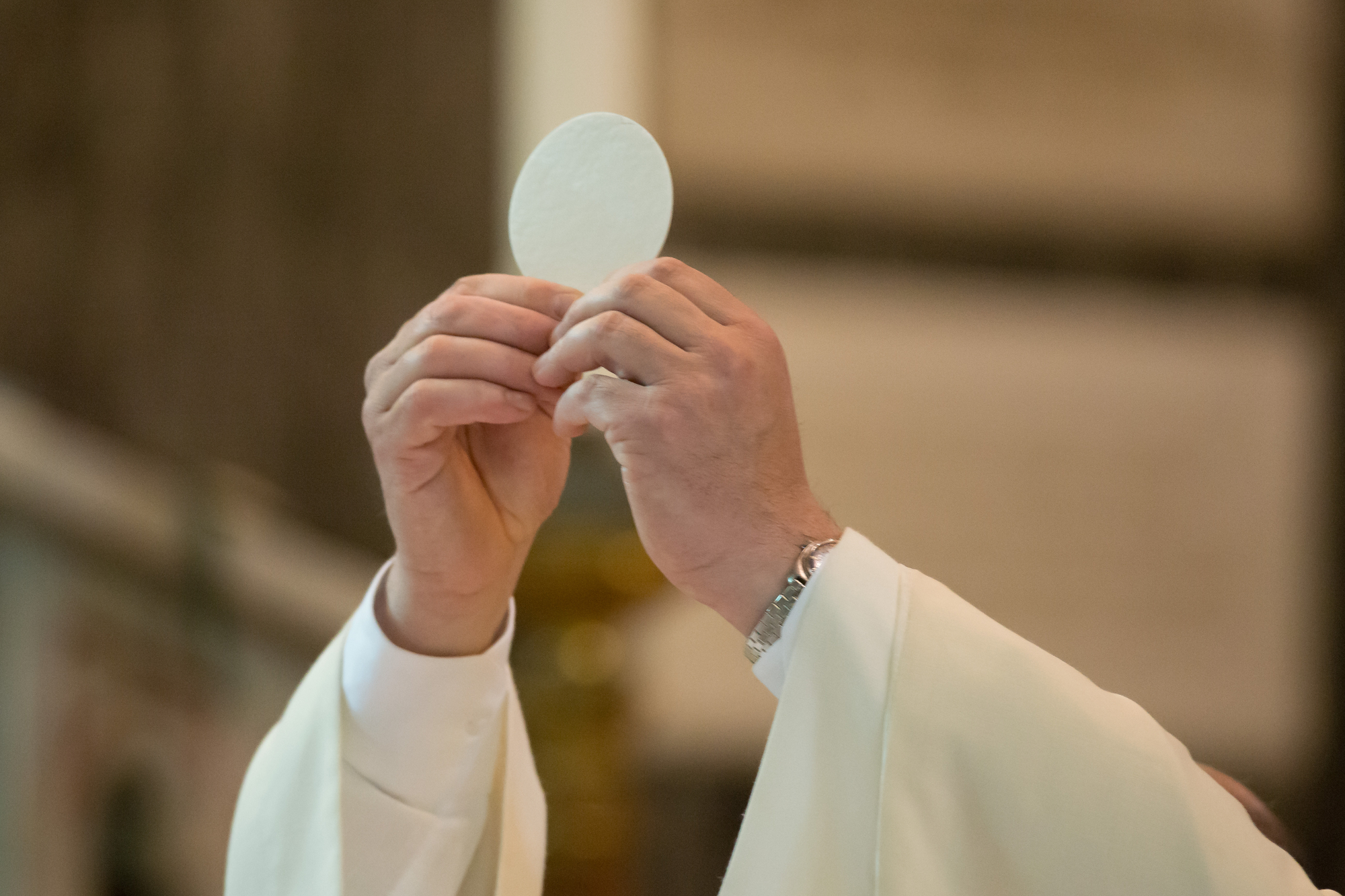
There are differing views among the various Christian denominations with regards to “Real Presence of Christ in the Lord’s Supper. This is a controversial issue; so controversial that even Protestants among themselves have differing views, however none of the Protestants adopt the Roman Catholic view of transubstantiation although Luther’s view while rejecting transubstantiation, is regarded as that closes to the Roman Catholic view among the Protestant views.
For the sake of Protestants not familiar with the term, transubstantiation is the Roman Catholic doctrine that changes the substance or essence of the bread and wine offered during the mass. Roman Catholics believe that the bread is transformed into the body of Christ while the wine is transformed into His blood.
As in other matters, Roman Catholicism goes beyond the bounds of Scriptures and holds on to transubstantiation.
Why do the Protestants disagree with the Roman Catholic church’s position regarding transubstantiation? The arguments are as follows:
Argument #1 – The doctrine of Transubstantiation is not directly and explicitly supported in Scriptures.
There is no single verse in the entire Bible that supports directly and explicitly the doctrine of transubstantiation. While Jesus did say during the last super to “ . . . Take, eat this is my body … drink, this is the blood of my covenant” (Mathew 26:26-28) the question remains, was Jesus speaking of His body figuratively or literally ? Or was it both ? The following facts elucidate our understanding of the matter:
1.) Jesus nor the Apostles never said that the elements in every Lord super will become his body and that wine will become his blood.
2.) Jesus did not provided specific step by step instructions on this ritual, hence conflict remains on what really happens. Does the bread and wine really transform into Christ body and blood ? Is it only symbolic ? These are questions wherein Jesus himself nor the Apostles did not directly answer. To impute to Jesus and the Apostle something that they did not specifically discuss is beyond reason and going beyond what the Scriptures is saying.
3.) Jesus did say one thing about the Lord’s supper that is very clear, He tells his disciples to do this in remembrance of Him. (Luke 22:19) Scripture directly and explicitly supports the fact that it is a “memorial” and upon its celebration the body of Christ is joined into deep spiritual fellowship with Him. (1 Cor. 10:16-17) Nothing is said about the bread and wine magically and actually transforming into actual body and actual blood of Christ.
Argument #2 – The early church fathers were simply divided on the issue.
While early church fathers were divided on the matter, it was not really a major issue considering that it was not taken up in the early church councils.
Early church fathers who seem not to advocate a “change” in the elements include the following: Arthenogoras (133-190) says it is unlawful to partake of the flesh of men. Theophilis (185?) of Antioch denies that Christians eat human flesh. Clement of Alexandria (150-215) said the bread and wine were symbols and metaphors. Tertullian (155-220) says the communion bread represents Christ’s body and refers to the communion supper as “spiritual words.” Origen (185-254) says the Bread is bread. He says nothing of a spiritual change. Eusebius (263-339) says the bread and wine are symbols of Christ’s Body. Theodoret (393-457) says the elements remain as bread and wine. And finally, Augustine (354-430) says the elements are a resemblance of the actual body and blood and that Christ’s words in John 6 about his body and blood are figurative.
On the other hand early church fathers who seems to mention in their writings a “change” in the elements as in the doctrine of substantiation are Justin the martyr, Cyril of Alexandria, John Crysostom, Athanasius of Alexandria and John of Damascus
The doctrine of transubstantiation only came out formally during the 11th century and was only formalized as a doctrine by the Roman Catholic church in the 4th council of Lateran in 1215.
Argument #3 – Even the Roman Catholic’s practice does not seem to make logical sense.
If the bread is the actual body of Christ and the wine is his actual blood then why is it that in the mass only the priest gets to eat the bread and drink the wine ? The Roman Catholic faithful only get to eat the bread but does not get to drink the wine. Did not Jesus Christ himself said in JKohn 6:53 that “. . . Verily, verily, I say unto you, Except ye eat the flesh of the Son of man, and drink his blood, ye have no life in you.” If this was literal then why are they Roman Catholic faithful not doing it ? I asked this question to a Roman Catholic and he said that the Council of Trent has declared that if you if you receive the bread you have already partaken of His blood. This clearly does not make any logical sense because is the Roman Catholic church saying then that the Council of Trent has more authority than Christ himself ? Another Roman Catholic said that it is impractical to let everybody partake of the wine. If the Roman Catholic church takes Christ’s words to be literal then the excuse about not doing it because it is “impractical” gives them no excuse not to follow the instructions of Christ to the letter ! Do they just follow Christ out of convenience ?
Argument #4 – The Roman Catholic view on the effect of Transubstantiation is not only unscriptural but even heretical and blasphemous
Consider the following words by “Fr. John O’Brien, Roman Catholic priest, in his book “The Faith of Millions” on what really happens in the Eucharist from the Roman Catholic Church’s point of view:
“When the priest pronounces the tremendous words of consecration, he reaches up into the heavens, brings Christ down from His throne, and places Him upon our altar to be offered up again as the Victim for the sins of man.
It is a power greater than that of monarchs and emperors: it is greater than that of saints and angels, greater than that of Seraphim and Cherubim. Indeed it is greater even than the power of the Virgin Mary.
While the Blessed Virgin was the human agency by which Christ became incarnate a single time, the priest brings Christ down from heaven, and renders Him present on our altar as the eternal Victim for the sins of man—not once but a thousand times! The priest speaks and lo! Christ, the eternal and omnipotent God, bows His head in humble obedience to the priest’s command.”
Wow ! What blasphemy ! The power of the priest to bring down Christ in the Eucharist is “greater than that of monarchs and emperors: it is greater than that of saints and angels, greater than that of Seraphim and Cherubim. Indeed it is greater even than the power of the Virgin Mary.” ? I am at lost for such brazen blasphemy.
For those who say that this is only the opinion of one priest then you truly do not know the doctrine of your own church. The catechisms of the Roman Catholic church supports the view the Father O’Brein holds:
“The sacrifice of Christ and the sacrifice of the Eucharist are one single sacrifice: “The victim is one and the same: the same now offers through the ministry of priests, who then offered himself on the cross; only the manner of offering is different.” “In this divine sacrifice which is celebrated in the Mass, the same Christ who offered himself once in a bloody manner on the altar of the cross is contained and is offered in an unbloody manner.” – 1367, Catechisms of the Roman Catholic church
“Communion with the body and blood of Christ increases the communicant’s union with the Lord, forgives his venial sins, and preserves him from grave sins. Since receiving this sacrament strengthens the bonds of charity between the communicant and Christ, it also reinforces the unity of the church as the mystical body of Christ.” – 1416, Catechisms of the Roman Catholic church
This view is truly blasphemous and contrary to what the Scripture teaches. The Roman Catholic Mass crucifies Jesus over and over again, Take note that the Bible states that Jesus gave himself for a once and for all sacrifice (Hebrews 10:10, 12, 14)
No wonder why the famed Reformer John Calvin has such strong words against the nonesense of the Roman Catholic eucharist when he wrote:
”Under the apostles the Lord’s Supper was administered with great simplicity. Their immediate successors added something to enhance the dignity of the mystery which was not to be condemned. But afterward they were replaced by those foolish imitators, who, by patching pieces from time to time, contrived for us these priestly vestments that we see in the Mass, these altar ornaments, these gesticulations, and the whole apparatus of useless things” – Institutes of Christian Religion (4:10:19).
In conclusion, considering that the doctrine of Transubstantiation does not have direct explicit scriptural support and that the early church fathers were divided on the issue, it is out right illogical, unscriptural and blasphemous and logic dictates that the best position is to reject the said doctrine.
As a side note, personally I used to adopt the view of Memorialism by Zwingli and that of 20th century Reformed Theologian Karl Barth’s view of “Symbolic Memorialism” which is adopted by several Protestant denominations such as most Baptist, the denomination to which I belong to. However after extensive study of this matter, I believe Calvin’s “Reformed view” or what is known as “receptionism” is the more Scriptural and logical position on this matter. I shall write more extensively about the other Protestant views on the Lord supper sometime in the future.
 Hi ! my name is Zigfred Diaz. Thanks for visiting my personal blog ! Never miss a post from this blog. Subscribe to my full feeds for free. Click here to subscribe to zdiaz.com by Email
Hi ! my name is Zigfred Diaz. Thanks for visiting my personal blog ! Never miss a post from this blog. Subscribe to my full feeds for free. Click here to subscribe to zdiaz.com by Email
You may also want to visit my other blogs. Click here to learn more about great travel ideas.

Leave a Reply